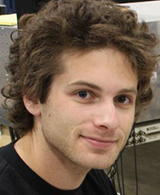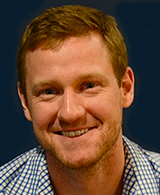BrainsCAN's Postdoctoral Associates
Through the Postdoctoral Fellowship Program, BrainsCAN is bringing the world's most promising early career cognitive neuroscientists to Western University. Training the next generation of researchers is a key aim of BrainsCAN, and postdoctoral fellows are the engines of innovative research.
In fall 2017, the first set of fellows joined the program under the designation of a BrainsCAN Fellow or Postdoctoral Associate.
Learn about the Postdoctoral Associates and their research.
Current BrainsCAN Postdoctoral Associates:
Marieka DeVuono
Former BrainsCAN Postdoctoral Associates:
Justine Cléry, Felix Desmeules-Trudel, Chelsea Ekstrand, Chris Forgaard, Roy Haast, Ahmed Hashad, Hiroyuki Igarashi, Cassandra Lowe, Christina McDonnell, Jonathan Michaels, Sasha Reschechtko, Mojtaba Soltanlou, Swathi Swaminathan, Melissa Troyer, Joana Vieira, Jeff Weiler, Yiming Xiao
Current BrainsCAN Postdoctoral Associates

Marieka DeVuono
BrainsCAN Postdoctoral Associate (2021—Present)
PhD, Psychology and Neuroscience — University of Guelph
Investigating sex and dose-dependent cognitive impairments produced by adolescent THC exposure
Supervisor(s): Dr. Steven Laviolette, Dr. Susanne Schmid, Dr. Walter RushlowResearch Information:
Cannabis use during adolescence can lead to long-term cognitive deficits and is associated with an increased risk for neuropsychiatric disorders later in life. The primary psychoactive component of cannabis, tetrahydrocannabinol (THC), may interrupt normal brain maturation during this critical period of development, leading to long-term cognitive consequences. The specific neurobiological mechanisms of these impairments remain unknown. Using a preclinical model of adolescent THC exposure, this project will investigate the neural pathways and molecular changes underlying cognitive impairments produced by adolescent THC exposure. A variety of THC doses will be investigated because THC is known to produce biphasic effects on multiple cognitive processes, where low and high doses often produce opposite effects. Higher potency cannabis is also associated with greater cognitive risks. Moreover, THC is known to produce sex-specific effects, yet the majority of research on the effect of adolescent THC exposure has been done exclusively in males. This project will also address this knowledge gap and investigate the sex-dependent effects of THC on cognitive development. Results from this study will advance our knowledge of the long-term consequences of adolescent cannabis use and have the potential to influence the development of treatments for disorders with cognitive impairments.
Former BrainsCAN Postdoctoral Associates

Justine Cléry
Assistant Professor
McGill University
BrainsCAN Postdoctoral Associate (2017—2021)
BrainsCAN Fellow (2021—2022)
Ultra-high field functional mapping of the multisensory integration network in NHPs
Supervisor(s): Dr. Stefan Everling, Dr. Ravi Menon, Dr. Stefan Everling, Dr. Andrew Pruszynski
PhD, Neurosciences and Cognition — Université Claude Bernard Lyon I, France

Chelsea Ekstrand
Assistant Professor of Neuroscience
University of Lethbridge
BrainsCAN Postdoctoral Associate (2019—2020)
Advancing inter-subject correlation approaches to naturalistic cognition using immersive virtual environments
Supervisor(s): Dr. Jody Culham, Dr. Ingrid Johnsrude
PhD, Psychology, Cognition and Neuroscience — University of Saskatchewan

Chris Forgaard
Research Officer
Schulich School of Medicine & Dentistry, Western University
BrainsCAN Postdoctoral Associate (2019—2021)
Neuroplasticity in sensorimotor feedback driven by visual observation
Supervisor(s): Dr. Paul Gribble, Dr. Andrew Pruszynski
PhD, Human Motor Control — University of British Columbia
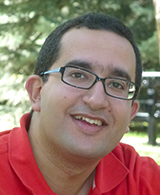
Ahmed Hashad
Postdoctoral Researcher
University of Vermont
BrainsCAN Postdoctoral Associate (2019—2024)
Cortical Microcircuits Underlying Stress-induced Cognitive Impairments
Supervisor(s): Dr. Wataru Inoue, Dr. Julio Martinez-Trujillo, Dr. Lisa Saksida, Dr. Tim Bussey
PhD, Cardiovascular and Respiratory Sciences — University of Calgary

Cassandra Lowe
Began as a Tier I BrainsCAN Postdoctoral Fellow in August, 2019.
BrainsCAN Postdoctoral Associate (2018—2019)
Assessment of the neural mechanisms underlying self-regulation, and the factors that influence the development of these mechanisms
Supervisor(s): Dr. J. Bruce Morton
PhD, Public Health and Health Systems — University of Waterloo

Christina McDonnell
Assistant Professor
Department of Psychology, Clinical Science Area
Faculty Affiliate, VT Center for Autism Research
Virginia Polytechnic Institute and State University, United States
BrainsCAN Postdoctoral Associate (2018—2019)
The Neurobiology of Autobiographical Memory and Emotion Socialization in Autism Spectrum Disorder
Supervisor(s): Dr. Ryan Stevenson, Dr. Elizabeth Hayden
PhD, Clinical Psychology — University of Notre Dame
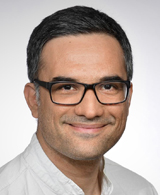
Mojtaba Soltanlou
Began as a Tier I BrainsCAN Postdoctoral Fellow in June, 2020.
BrainsCAN Postdoctoral Associate (2019—2020)
How do we know "2" but not "3" means "two"? Neural correlates of symbolic number knowledge in kindergarteners
Supervisor(s): Dr. Daniel Ansari, Dr. Marc Joanisse
PhD, Neuroscience — University of Tübingen

Swathi Swaminathan
BrainsCAN Postdoctoral Associate (2020—2022)
Travelling through time with music: Assessing the use of music to support autobiographical memory in older adults with and without Alzheimer's disease
Supervisor(s): Dr. Jessica Grahn, Dr. Stefan Köhler, Dr. Elizabeth Finger
PhD, Psychology — University of Toronto

Melissa Troyer
Postdoctoral Fellow
University of Illinois
BrainsCAN Postdoctoral Associate (2019—2020)
Integrating big data and neuroimaging to understand variation in knowledge organization and its influence on language comprehension
Supervisor(s): Dr. Ken McRae, Dr. Marc Joanisse, Dr. Stefan Köhler
PhD, Cognitive Science — University of California, San Diego
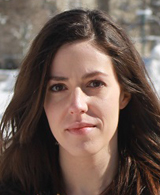
Joana Vieira (top-up)
Postdoctoral Fellow
Department of Clinical Neuroscience
Karolinska Institutet, Sweden
BrainsCAN Postdoctoral Associate (2017—2018)
Does sensitivity to others' fear promote the willingness to help them in threatening situations?
Supervisor(s): Dr. Derek Mitchell
PhD, Neuroscience — University of Porto, Portugal

Yiming Xiao
Began as a Tier I BrainsCAN Postdoctoral Fellow in June, 2020.
BrainsCAN Postdoctoral Associate (2018—2020)
Incorporating human brain connectome in planning deep brain stimulation to treat Parkinson's disease
Supervisor(s): Dr. Terry Peters, Dr. Ali Khan
PhD, Biomedical Engineering — McGill University






